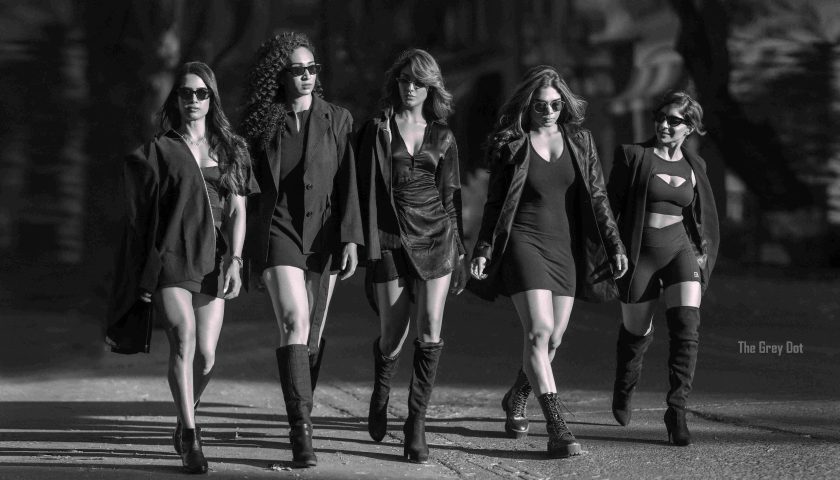When fashion mogul Dame Pieter Stewart launched what would become the first New Zealand Fashion Week in 2001, her aim was to give home-grown designers a platform on a large scale.
Since then, fashion week has become a must-see event in Aotearoa, launching countless careers and brands, showcasing Kiwi talent to the world.
Twenty years later and after selling the event to businessman Feroz Ali in 2021, Stewart is ready to end her philanthropic fashion.
“I would really like to take on some governance roles. I’m also looking for charities that I can be of use to,” she says.
READ MORE:
* Why this is the ‘best season of Project Runway’ ever
* ‘I’m so keen to visit New Zealand’: Making the Cut’s Tim Gunn on the future of fashion
* How Jason Wu is preparing for a New York Fashion Week like no other amid the coronavirus
* Project Runway NZ’s Georgia Fowler on golf, family and sewing
“But I’m mostly just waiting to see what comes up because it’s only been a short time since I stopped running the business.”
The 76-year-old, before becoming a post-fashion week powerhouse, was involved with numerous charity and community service groups, particularly related to pediatric cancer.
“I had to stop all those things when fashion week became alluring to me. I hope to return to philanthropy because that is where my interest lies,” she says.
The last fashion week was held in 2019 before the pandemic halted all large-scale gatherings.
Stewart says designers felt “up in the air” during this time, but the ability to still sell and market digitally changed everything.
Michael Ng/Supplied
Dame Pieter Stewart speaking at an event in Auckland celebrating the 20th anniversary of fashion week.
“Most designers have really strong online stores, and for a lot of people during Covid, it was their lifesaver.”
As for the next fashion week, scheduled to take place in 2023, Stewart is looking forward to taking on a consulting role.
“I will be consulting with new general manager Yasmin Farry for a while and I’m looking forward to it. She’s someone who’s worked for us as a producer for 10 years, and she’s a great, steady hand.”
She says the role won’t take up much of her time, leaving her free to pursue other interests.
For avid fashion week fans, Stewart says: “We have dates booked for this time next year. So yes, we will start working towards that.”
Looking back at 20 years of fashion week, she wants to honor all the people who have been involved in the event over the decades.
“I couldn’t ask for more because 20 years is a long time. It is very important to acknowledge everyone who has made the brand what it is.”
Michael Ng/Supplied
Kathryn Wilson, left, Julia Leuchars and Lulu Wilcox. Leuchars hopes the fashion week, under new ownership, will bring a renewed energy and excitement.
Julia Leuchars, Trelise Cooper designer and director of marketing and communications, says being without fashion week for three years has been difficult.
“We were used to having this beautiful platform to showcase our stories and our brand while adding a bit of theater to it, and all of a sudden, it was all taken away from us.”
She says the brand had to find a way to adapt, and its already established digital platform became its saving grace.
“I oversaw all our different digital interactions, especially during the first lockdown, and engagement increased by 14,000% across our digital platforms, which was amazing.”
But, she says, “there will always be a place for that amazing catwalk extravaganza.”
Leuchars hopes fashion week under new ownership will bring renewed energy and excitement, as well as fresh eyes.
“It’s not about replacing, it’s about building where we were, especially before the pandemic. For people in the industry, fashion week is a showcase of hard work, mixed with a level of theatre, excitement and passion.”
Michael Ng/Supplied
Margi Robertson with NOM*d models. Robertson says you can’t digitally reproduce an atmosphere.
Fashion design brand founder Margi Robertson, NOM*d, says the pandemic increased the need to have a digital presence.
But what you can’t reproduce digitally is an atmosphere, she says.
“I missed the runway shows. Fashion Week was an opportunity to do our own show, with our own music, with our own models.”
She tips her hat to Stewart for having the courage to “stick with it” for 20 years.
“What she [Stewart] achieved in its time was incredible. I think she was learning along the way like everyone else.
“But I think it’s also great to be able to let go and release some new ideas. We’re entering a new era, not just fashion-wise, but globally.”
She says she’ll be looking forward to seeing what happens with the next fashion week event, “just like everyone else.”
Myken Stewart, Dame Pieter’s daughter, says she hopes next year’s fashion week will be bigger and better than ever.
“I hope Feroz continues all the great work we’ve started and makes it more relevant and continues to grow on what we’ve built.”
She admits there is no I in the event and over 20 years, many people from all parts of the industry have worked together to create New Zealand’s thriving fashion scene.
“All the people here like the stylists, the security, the hair and makeup team, they’re all people who have been a part of this since the beginning.”
Of what her mother has achieved, Stewart says: “I’m very proud. She was a visionary.”




